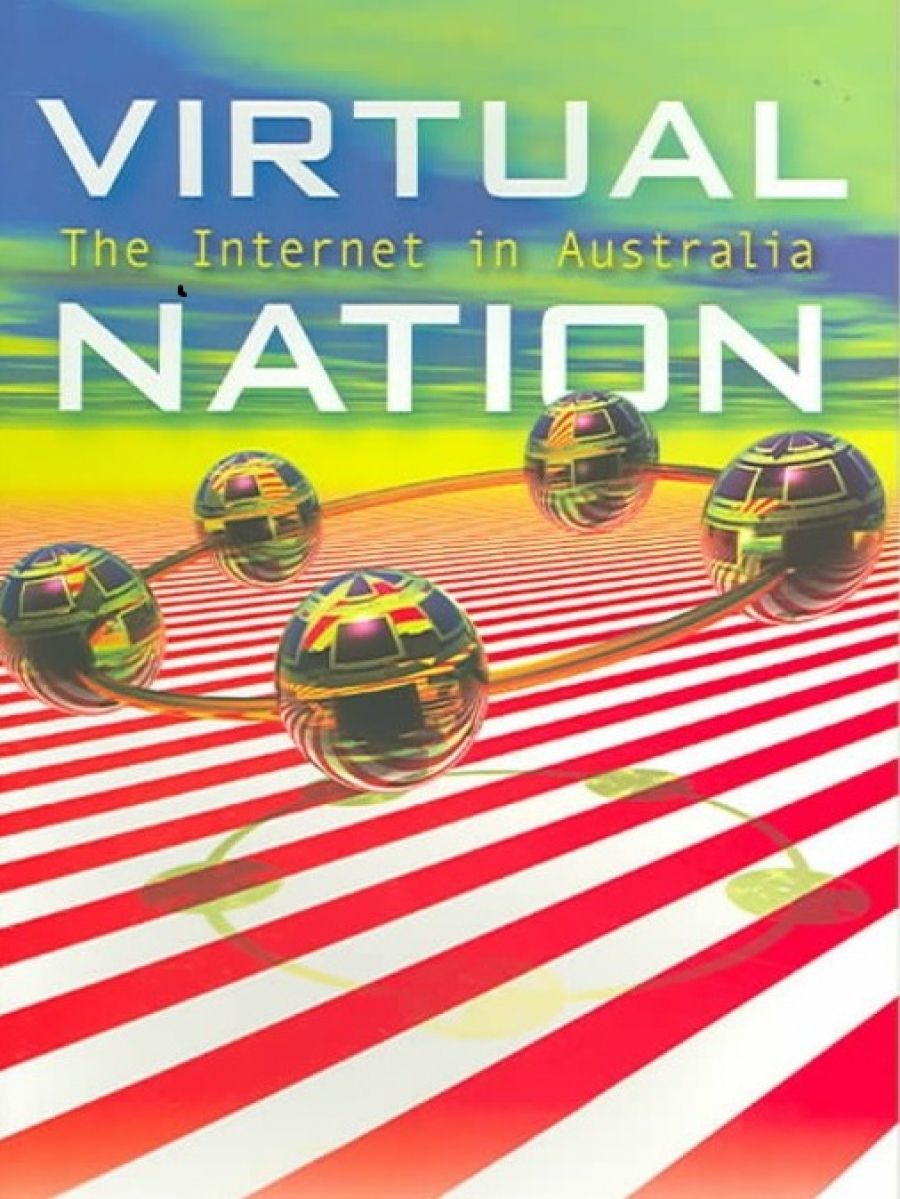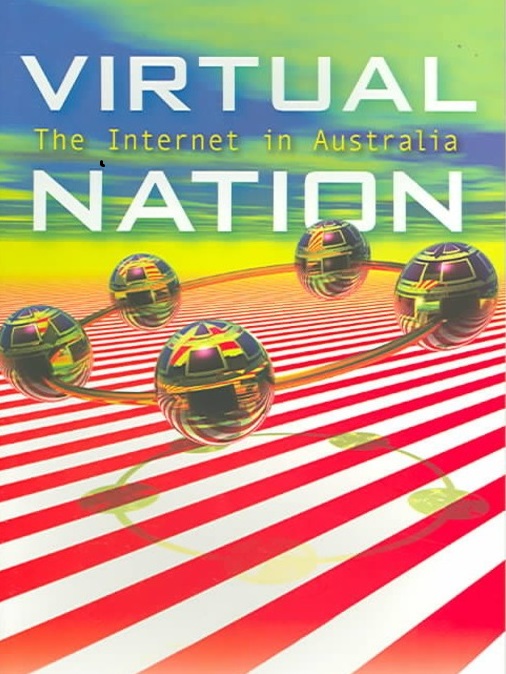
- Free Article: No
- Contents Category: Technology
- Review Article: Yes
- Article Title: Little Frankenstein
- Online Only: No
- Custom Highlight Text:
The internet, like its big sister, the electronic computer, is a Little Frankenstein of the Cold War – one of the countless bright ideas brought shuddering to life with the financial backing of the US military’s Defense Advanced Research Projects Agency in the feverish aftermath of the launching of Sputnik, the world’s first man-made satellite, by the Soviet Union in 1957. And why did the US military finance the research and development of a medium that would, thirty years down the track, turn the Amazon into a cheap place to buy books and forever pervert the meaning of a humble can of Spam? In a word: Armageddon.
- Book 1 Title: Virtual Nation
- Book 1 Subtitle: The internet in Australia
- Book 1 Biblio: UNSW Press, $49.95pb, 320pp
- Book 1 Cover Small (400 x 600):

- Book 1 Cover (800 x 1200):

Edited by Dr Gerard Goggin, a research fellow with the University of Queensland’s Centre for Critical and Cultural Studies. Virtual Nation had the chance to deliver the quintessentially Australian profile of the Internet, but, instead of telling the story in an engaging manner, turned it into a glorified textbook. Ultimately, it is a wasted opportunity and, for general readers. a waste of money.
The book contains an impressive enough stable of twenty-three contributors, a cadre of academics and Internet mavens who deliver mini-chapters on everything from the Internet’s history to its culture, use, policy and vision. The trouble is that many chapters read like synopses of their authors’ latest theses, rather than the honed, Quarterly Essay treatment the subject deserves. All up, it makes for a decidedly unfocused, narcoleptic read.
Virtual Nation’s lack of focus is compounded by its inauspicious opening. The introduction reads more like an advertorial plea for anybody and everybody to buy a copy. Besides the sales pitch, Goggin’s introduction contends that Virtual Nation ‘looks at how this technology has not only linked computers together to form a network of networks but takes its part in weaving the fabric of our lives.’ More time spent expounding on this as the theme of the book, and less time hawking for readers, would have been appreciated. To his credit, Goggin signs off with an invitation to readers to ‘continue the discussion through my blog and website’. Nice idea. Unfortunately, when I checked the blog the only user comments to be found were spams spruiking a cornucopia of porn sites.
That inauspicious introduction is followed by an equally inauspicious opening chapter – ‘Antipodean Internet’, which is also written by Goggin and which reads like a second attempt at an introduction. Rather than give Virtual Nation form and focus, ‘Antipodean Internet’ waffles on, stating the obvious (‘The Internet ... has been widely adopted by Australians’), ticking off an interminable list of reference books, and rounding off with a call to arms to engage in ‘critical Internet studies’. As opposed to uncritical.
The best advice for those compelled to read Virtual Nation is to skip the introduction and first chapter, ignore the superfluous blurbs at the beginning of each of the book’s six sections, and either commence reading from the second chapter, an Internet primer penned by Electronic Frontiers Australia and Australian Privacy Foundation board member Roger Clarke, or, better yet, flip to page 274 and begin with the last chapter, ‘Histories, Trends, Futures: Roundtable on the Australian Internet’. Unlike most that precedes it, ‘Histories, Trends, Futures’ reads as though it was produced specifically for Virtual Nation. In this chapter, seven of the book’s contributors, including Clarke and Goggin, trade views on a variety of issues, such as the dearth of bandwidth in regional, rural and remote Australia and the privatisation of Telstra. Its conversational style makes for the most engaging read of the book, and breathes life into some of Virtual Nation’s previous, more stilted chapters.
Other interesting contributions include Alan McKee’s ‘Pornography and Sexuality Online’, Jock Given’s ‘Evolutionary Constitutionalism’ and Graham Meikle’s ‘Networks of Influence’. McKee’s chapter is especially topical, given the raft of recent arrests in Australia for possession of child pornography. It contends that child porn is relatively rare online and, largely based on a survey of 612 pornography consumers, finds that 60.8 per cent of respondents access pornography online and 57.8 per cent believe porn has had a positive impact on their attitudes to sexuality. An interesting issue but, like most chapters in Virtual Nation, I would have preferred to see McKee give more than a summary execution of the subject.
Used as a teacher’s aid in a classroom, Virtual Nation may well have merit. Ultimately, though, it should be avoided by civilians, because ploughing through its 320 pages is about as much fun as surfing the Web on a dial-up modem. On the other hand, if you are in the market for a bare bones reference book on the Internet from an Australian perspective Virtual Nation could be useful – after all, each chapter includes extensive notes and reading lists, and the index is decent.
Then again, you could just try Google.


Comments powered by CComment